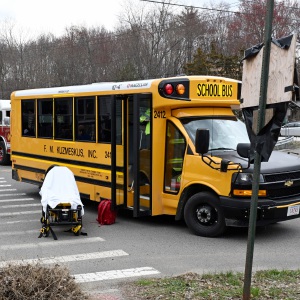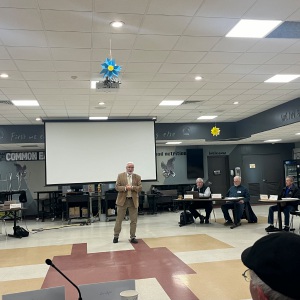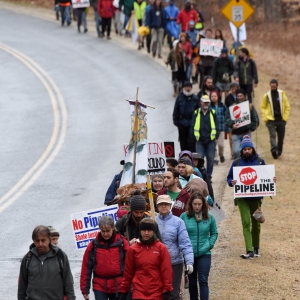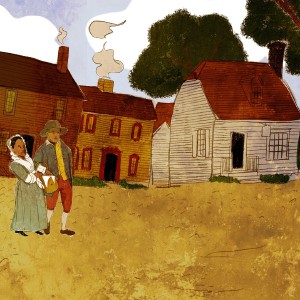Guest columnist Daniel Cantor Yalowitz: Being accountable a marker for maturity

Daniel Cantor Yalowitz
| Published: 05-13-2024 7:01 AM |
“A body of people holding themselves accountable to nobody ought not to be trusted by anybody.” — Thomas Paine
One thing that distinguishes grown-up mature adults from others not in this cohort is the ability to “own” and be accountable and responsible for one’s sayings and doings. This is easy when things are well, positive, and in good form. In fact, we love taking credit for our achievements and accomplishments. However, it gets tough when we experience challenge, conflict, and even defeat (all of which are inevitable in life).
Accountability is a personal obligation or willingness to accept responsibility for one’s actions. Up through adolescence and, sadly, sometimes beyond, most younger people find it more (or most) convenient to put blame or fault on mistakes they’ve made on others. Why is this? While it’s hard to be formulaic, some reasons why people dump their errors on others may be due to shame, fear or stigma (of retribution or pejorative name-calling), and the all-out quest for perfection (which doesn’t exist).
Most often, our negative responses and reactions to being accountable stem from the too-high expectations we have of ourselves or those that are foisted upon us by our parents or other responsible adults and authorities. No one experiences going through life without shirking full and meaningful accountability at some point. The hope (along with some of our life training) is that we will learn to become accountable regardless of the outcome or consequence of whatever we say or do, while growing out of our earlier selfish habit of blaming others for the errors of our ways.
It takes personal strength and self-confidence to be accountable for all that transpires during one’s short life. As writer Sunday Adelaja wrote in “The Mountain of Ignorance,” “… if people in the position of power are not made to be accountable, then ungodliness, injustice, and oppression will continue to be the order of the day in that society.” No matter our station or status in life — powerful or powerless — to be citizens of civil society, accountability is both a value and an activity that cannot afford to be overlooked. As individuals in a larger collective, it is imperative that we contribute whatever our highest selves are capable of — and “own” whatever that is, however it plays out.
Just as conflict is inevitable in life, so, too, are mistakes and occasional lapses in judgment. These are aspects of what we know to be “the human condition.” Were we better able to let go of our personal quests for perfection, we likely would not be as worried about needing to pass the buck when something we say or do goes awry. In my eyes, those who can publicly own up to and live with their occasional errors by taking responsibility for them are stronger and easier to earn my trust than those who cannot.
Just yesterday, I forgot to do a task for a friend that I had earlier committed to doing. In remembering (too late) to take this on, there was shame, embarrassment, a (small) feeling of failure. From my awareness of sharing truth with friends, and being open and honest with them, I was direct in my reporting that I had messed up. Without inner or external rancor, I owned up to my forgetfulness, offered a sincere apology, and hoped for forgiveness, which was, thankfully, immediately forthcoming. To me, that was “case closed,” except for my personal debrief, wherein I asked myself, “How do I try harder not to do that again?”
How many times have I, and you, forgotten or been late with something, or done it incorrectly? Hiding, blaming, ignoring or manipulating the truth doesn’t change or excuse that something happened the wrong way, or not at all. Let’s be what we are, human, and accept what goes wrong for us and take responsibility, and grow from it all.
Article continues after...
Yesterday's Most Read Articles
 Vehicle collides with school bus causing minor injuries in Montague City
Vehicle collides with school bus causing minor injuries in Montague City
 UMass faculty calls on land grant universities to join in fight against Trump administration; McGovern, AG also weigh in
UMass faculty calls on land grant universities to join in fight against Trump administration; McGovern, AG also weigh in
 Franklin County Technical School Committee votes to oppose lottery system
Franklin County Technical School Committee votes to oppose lottery system
 Franklin County, North Quabbin groups send letter opposing pipeline expansion
Franklin County, North Quabbin groups send letter opposing pipeline expansion
 HS Roundup: Smith Academy baseball knocks off Mahar, 5-1
HS Roundup: Smith Academy baseball knocks off Mahar, 5-1
 Termination of $300K federal grant presents ‘an institutional setback’ for PVMA
Termination of $300K federal grant presents ‘an institutional setback’ for PVMA
Ultimately, according to Pearl Zhu, accountability means to “say what you do, and do what you say.” Is life about passing the buck whenever possible or convenient, or finding our courage and saying “the buck stops here” when something untoward comes forth from us? We have choices and decisions to make that will reflect on our integrity, and, in the end, our legacy. As a civilized society, we would do much better if we could teach our children what accountability is, and why it leads to a more meaningful form of living in community. What holds us back from doing so is the (often imagined) fear that punishment, belittlement, or pain lurks at every turn.
In the life that I lead, holding myself accountable must come first and before I hold anyone else responsible for my doings. I see doing so as a marker of adulthood and maturity, aspects of life that are always evolving.
Daniel Cantor Yalowitz writes a regular column in the Recorder. A developmental and intercultural psychologist, he has facilitated change in many organizations and communities around the world. He is former chairman of the Greenfield Human Rights Commission and his two most recent books are “Journeying with Your Archetypes” and “Reflections on the Nature of Friendship.” Reach out to him at danielcyalowitz@gmail.com.






 My Turn: Raise every voice, every heart
My Turn: Raise every voice, every heart My Turn: Call us Cinderella Town
My Turn: Call us Cinderella Town Laura Josephs: Is a 170-foot cell tower really needed near Newton Elementary School?
Laura Josephs: Is a 170-foot cell tower really needed near Newton Elementary School? Marcia Schuhle: Much to do at Greenfield Senior Center
Marcia Schuhle: Much to do at Greenfield Senior Center
